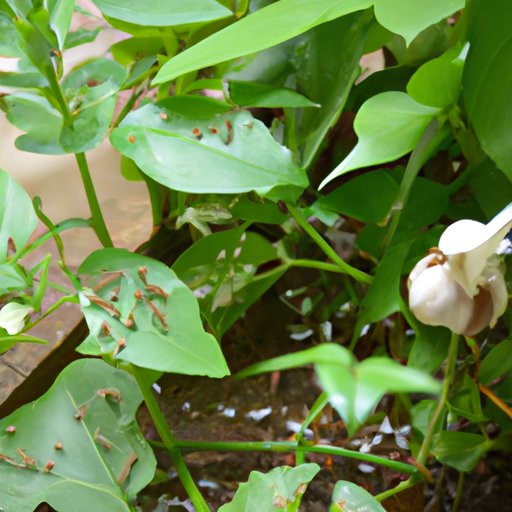Introduction
Insects can be a serious nuisance in the garden. They often feed on the leaves of plants, leaving them looking unsightly and reducing their ability to photosynthesize. Fortunately, there are some natural ways to prevent insects from eating plant leaves. In this article, we will explore seven simple ways to protect your plants from insect damage without using harsh chemicals.
Plant Pungent Herbs and Flowers Near Affected Plants
One way to discourage insects from feeding on your plants is to plant pungent herbs and flowers near them. Certain types of herbs, such as oregano, basil, sage, rosemary, and thyme, have strong aromas that insects do not like. Marigolds, petunias, and nasturtiums are also excellent choices for keeping insects away. Planting these herbs and flowers near affected plants can help repel insects and keep them from damaging your plants.
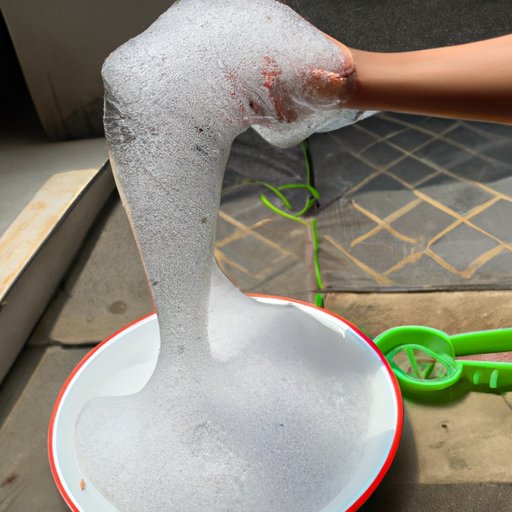
Create a Homemade Trap Using Soapy Water
Another effective way to control insect pests is to create a homemade trap using soapy water. To make a soapy water trap, simply mix one cup of dish soap with two gallons of water and pour the mixture into a shallow container. Place the container near the affected plants and wait for the insects to be attracted to the sudsy water. Once they enter the trap, they will drown in the liquid and can then be discarded.
Use Diatomaceous Earth to Coat Plant Leaves
Diatomaceous earth is a fine powder made from the fossilized remains of tiny aquatic organisms called diatoms. This powder can be used to coat the leaves of plants to deter insects. When applied to the leaves, the particles act like tiny razor blades, cutting the exoskeletons of any insects that attempt to feed on the plant. While diatomaceous earth is harmless to humans and animals, it can be very effective in controlling insect pests in the garden.
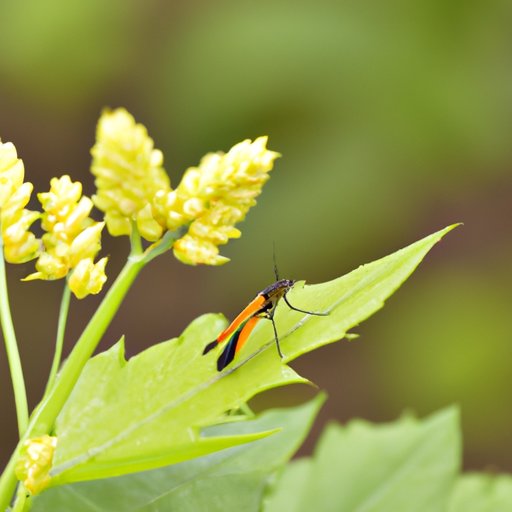
Introduce Beneficial Insects into the Garden
Some insects are actually beneficial to gardeners because they prey on other insects that can damage plants. Ladybugs, lacewings, and hoverflies are all examples of beneficial insects that can help keep pest populations under control. Introducing these beneficial insects into the garden is an easy and natural way to reduce insect damage to plants.
Spray Plants with Neem Oil or Garlic Spray
Neem oil and garlic spray are both natural insecticides that can be used to control insect pests in the garden. Neem oil is derived from the neem tree and has been used for centuries as an insect repellent. It is a safe and effective way to control aphids, mites, and other common garden pests. Garlic spray is another natural insecticide that can be used to repel insects. Both neem oil and garlic spray are safe for humans and pets, and can be used to protect plants from insect damage.
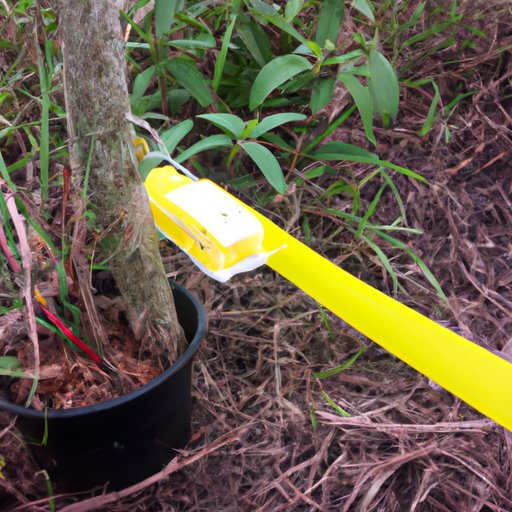
Install Yellow Sticky Traps Around Affected Plants
Yellow sticky traps are a great way to monitor and control insect pests in the garden. These traps are coated with a sticky substance that attracts insects. When placed around affected plants, they can help to reduce the population of pests in the area. The traps should be checked regularly and replaced when they become full of trapped insects.
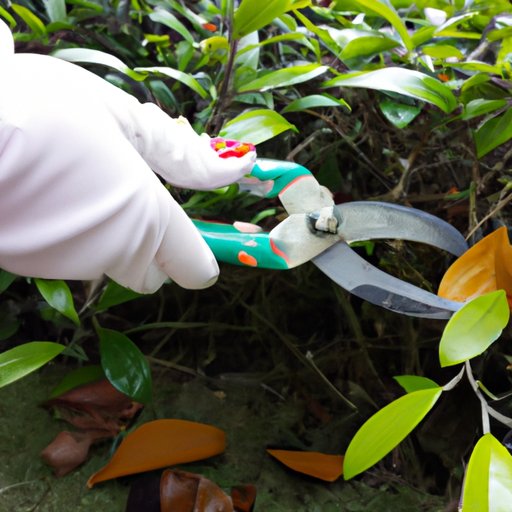
Practice Good Garden Hygiene and Remove Affected Leaves
Good garden hygiene is key to preventing insect damage to plants. Removing affected leaves from plants can help reduce the number of pests in the garden. Additionally, debris and weeds should be removed from the garden to reduce the number of hiding places for insects. Mulching around plants can also help to keep the soil moist and reduce the number of insects in the area.
Conclusion
Insects can cause significant damage to plants if left unchecked. Fortunately, there are some natural methods that can be used to prevent insect damage to plants. Planting pungent herbs and flowers near affected plants, creating a homemade trap using soapy water, using diatomaceous earth to coat plant leaves, introducing beneficial insects into the garden, spraying plants with neem oil or garlic spray, installing yellow sticky traps around affected plants, and practicing good garden hygiene are all effective ways to stop insects from eating plant leaves naturally.
(Note: Is this article not meeting your expectations? Do you have knowledge or insights to share? Unlock new opportunities and expand your reach by joining our authors team. Click Registration to join us and share your expertise with our readers.)
